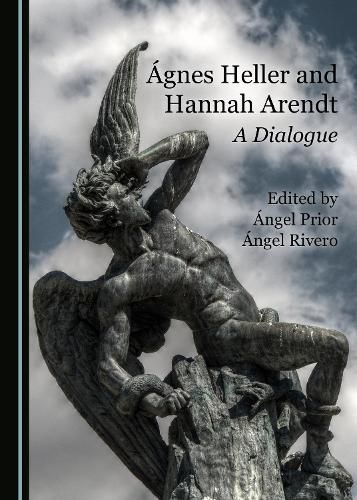Readings Newsletter
Become a Readings Member to make your shopping experience even easier.
Sign in or sign up for free!
You’re not far away from qualifying for FREE standard shipping within Australia
You’ve qualified for FREE standard shipping within Australia
The cart is loading…






This book reconstructs, through texts by Agnes Heller and international scholars, a timely conversation between Hannah Arendt and Heller on the malaises of modernity. This valuable work will be appreciated both by academics and students interested in social and political philosophy, in addition to the wider public curious of intellectual history. Both Arendt and Heller are great thinkers with the ability to enlighten the great moral and political problems of our time. Although these two great figures belong to different generations, the dialogue reconstructed here provides a fuller picture of the demise of the great totalitarian forces of the twentieth century. Both Arendt and Heller, in a sense, accepted the burden of understanding the evils of their age. It is, however, Heller, by addressing the perennial problems of modernity posed by Arendt, who makes this conversation possible, illuminating the problems of this century.
$9.00 standard shipping within Australia
FREE standard shipping within Australia for orders over $100.00
Express & International shipping calculated at checkout
This book reconstructs, through texts by Agnes Heller and international scholars, a timely conversation between Hannah Arendt and Heller on the malaises of modernity. This valuable work will be appreciated both by academics and students interested in social and political philosophy, in addition to the wider public curious of intellectual history. Both Arendt and Heller are great thinkers with the ability to enlighten the great moral and political problems of our time. Although these two great figures belong to different generations, the dialogue reconstructed here provides a fuller picture of the demise of the great totalitarian forces of the twentieth century. Both Arendt and Heller, in a sense, accepted the burden of understanding the evils of their age. It is, however, Heller, by addressing the perennial problems of modernity posed by Arendt, who makes this conversation possible, illuminating the problems of this century.